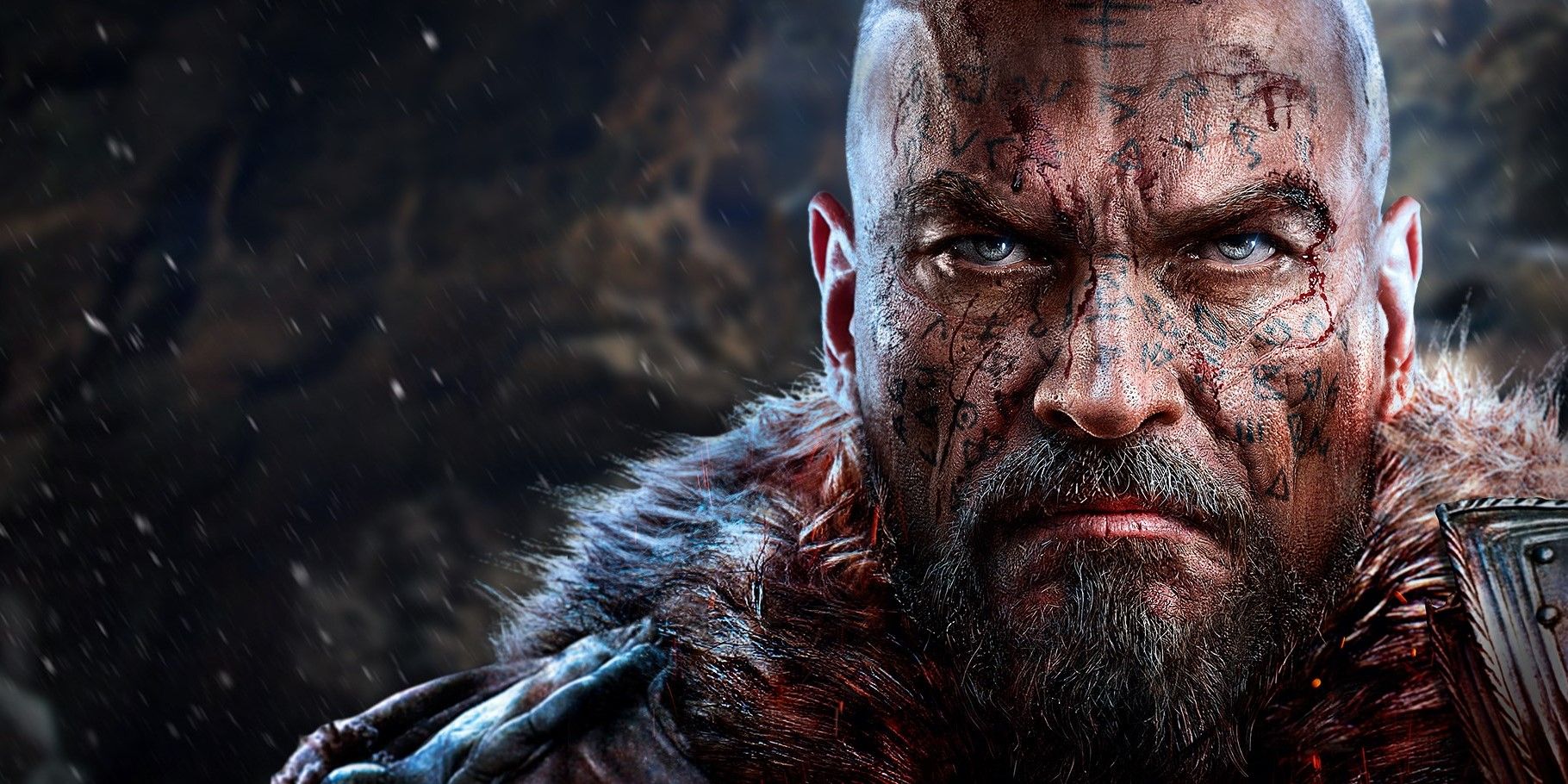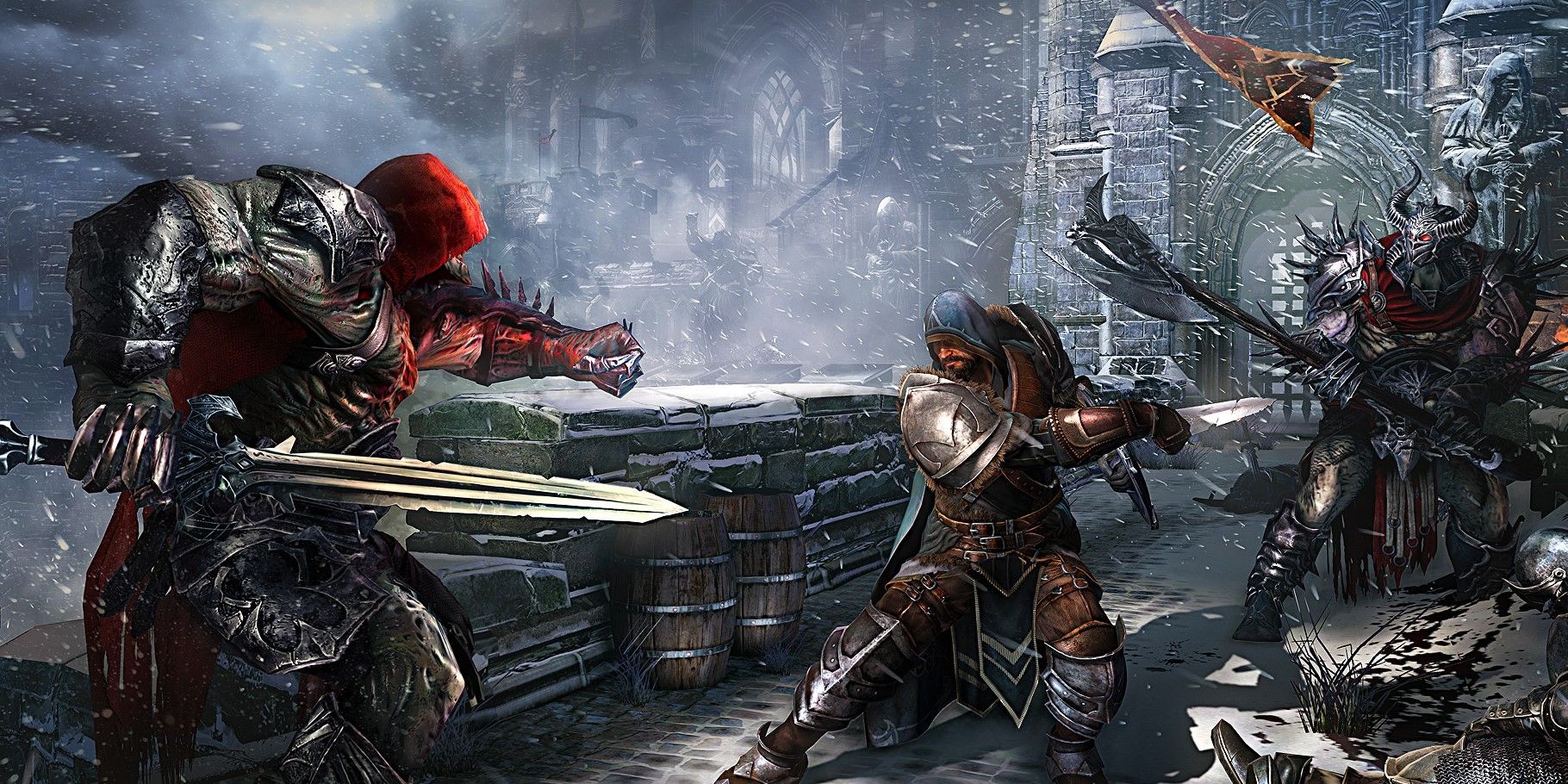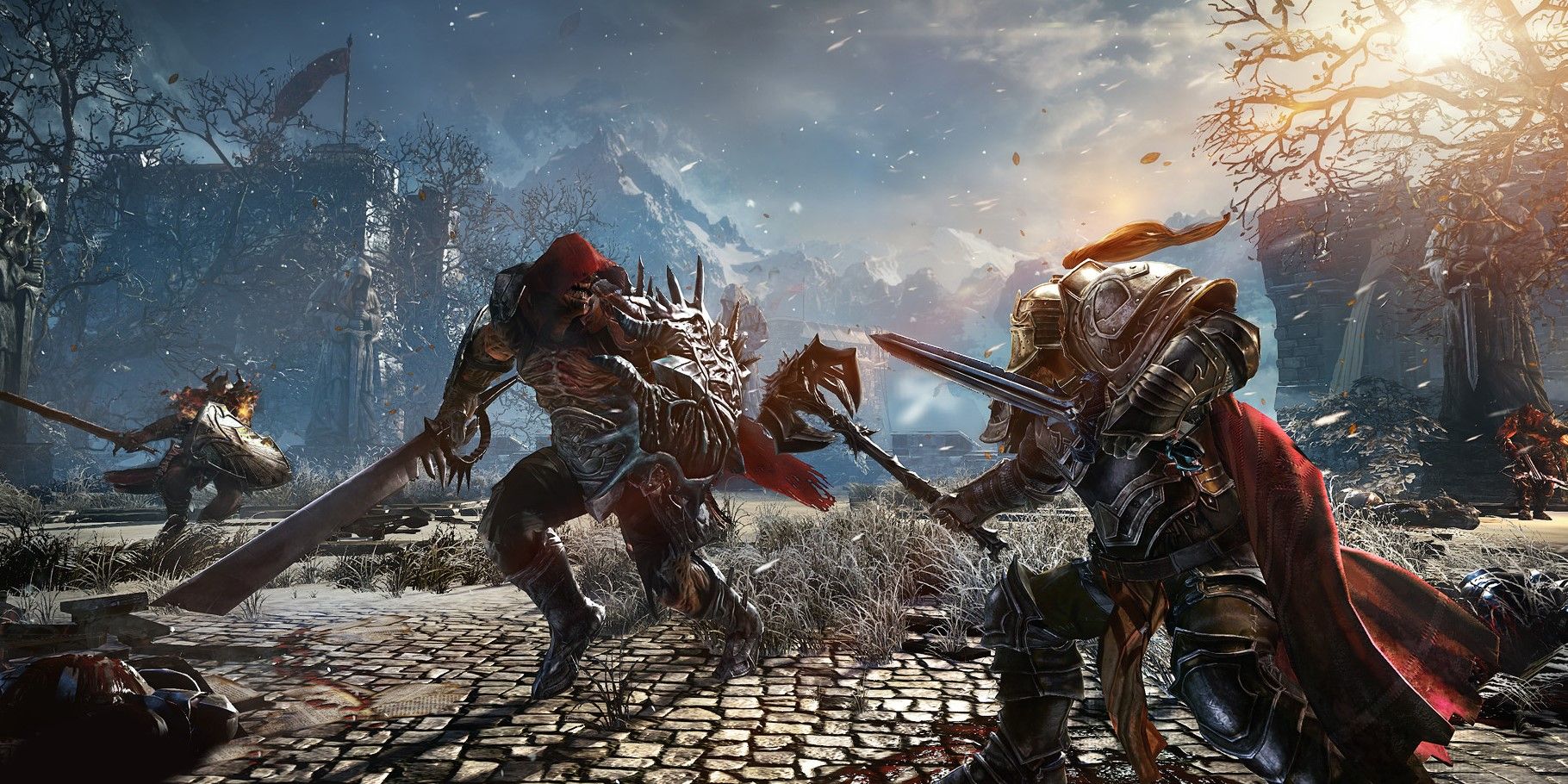Lords of the Fallen is widely known as the first Soulslike game to hit the market after FromSoftware's smash-hit Dark Souls introduced players to an entirely new kind of torturous gameplay. Unfortunately, because the term Soulslike hadn't yet been uttered, and the genre didn't exist, people saw Lords of the Fallen as Deck 13's attempt at ripping off FromSoftware's critically acclaimed game.
Now, 12 years later, there is a vast catalog of Soulslike games for players to choose from. Team Ninja, Cold Symmetry, and Gunfire Games have all successfully developed Soulslike games. It could be argued that Team Ninja's Nioh games are more like Dark Souls than the unfairly branded ripoff, Lords of the Fallen. Undeniably, Deck 13's challenging game was influenced by Dark Souls. Still, it tells an entirely different story, incorporates a different leveling system, and ups the stakes when the player must retrieve lost XP upon death.
The Lords of the Fallen aesthetic is undoubtedly similar to Dark Souls, with its crumbling gothic castles, labyrinthine cellars, and otherworldly terrains filled with demonic creatures. This, however, is where the similarities end, apart from the difficult gameplay and the need to retrieve lost XP upon death. When recovering lost XP, the player has one chance to reach the spot where they died, but Lords of the Fallen also introduces a timer for the player. If the timer runs out before the lost XP is found, it disappears forever. To this day, FromSoftware games have never implemented this mechanic.
Lords of the Fallen is just as tricky as FromSoftware games, though with a different style and gaming mechanics. The character's agility and speed make for a more fast-paced experience when fighting enemies and thus a quicker depletion of the stamina bar. Fighting more than two enemies is challenging as many enemies are as fast as the player, making fights particularly stressful. Running away is an option, though it isn't as easy as in Dark Souls. Enemies seem to pursue the fleeing player much farther in Lords of the Fallen than enemies do in Dark Souls. If the player continues to run, encountering new enemies along the way, this can lead to a crowd of deadly pursuers in no time if the player isn't careful.
Lords of the Fallen's story is also completely different from Dark Souls. It is told more directly through NPCs, cutscenes, and lost scrolls that the player can find scattered throughout the game. The demonic enemies, called the Rhogar, are more like interdimensional invaders than denizens of Hell, and they can convert humans into mutations that fight for them. Harkyn, the main protagonist, is a convicted criminal who has been chosen to fight off the invading Rhogar, but for what purpose is not immediately known.
Similar to Deck 13's follow-up, The Surge, there is no player creation in Lords of the Fallen. The game is as much about the lords that Harkyn must defeat as it is about Harkyn himself. The dialogue is well-written and informative, the voice acting is fantastic, and there's an underlying feeling of hope throughout the story. Much like Harkyn trying to redeem himself for his past crimes, Lords of the Fallen can hopefully redeem itself with players and be remembered as a pioneering Soulslike game rather than a ripoff.



